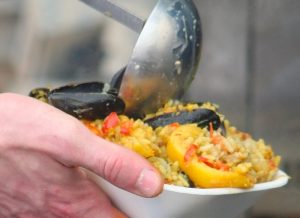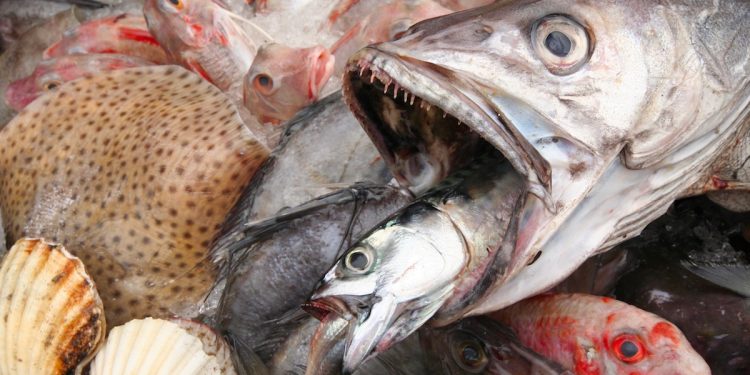Parliamentarians and representatives from across the UK fisheries sector met in Westminster to discuss marketing of UK seafood. The Marketing and Certification event arranged by the All Party Parliamentary Group on Fisheries discussed consumer preferences for sustainable products and how the seafood industry is responding, including via certification.
UK consumers bought 467,000 tonnes of seafood in 2017, with the big five species (cod, tuna, haddock, salmon and prawns) making up the lion’s share. These British favourites are predominantly imported, yet demand for alternative species – many caught in UK waters – is steadily growing.
This is in tandem with increasing demand for seafood that is certified as sustainable or caught following best practice. With so many factors affecting certification, consumption habits and retail trends, the APPG’s inter-industry event sparked great interest.
The event was chaired by Great Grimsby MP Melanie Onn, Co-Chair of the APPG. With strong connections to the seafood industry through Grimsby’s processors and fish markets, she frequently represents the fisheries sector in Parliament.

A diverse panel were invited to offer their perspectives on how certification, seafood guides and business engagement can support sustainable seafood from sea to plate.
‘Certification has a crucial role to play in safeguarding our seas and contributing to the health of the world’s oceans by recognising and rewarding sustainable fishing practices,’ said Erin Priddle, Programme Director for the UK and Ireland at the Marine Stewardship Council (MSC). She highlighted how certification can ensure traceability throughout the seafood supply chain.
The MSC is the most influential seafood certification body in the UK and worldwide, but attendees indicated that there is also room for a range of seafood certification approaches across the sector, including some better suited to encompass smaller-scale operators.
Cornwall Good Seafood Guide’s Matt Slater discussed how regional sustainable seafood guides can complement larger initiatives, but stressed that a lack of data makes compiling such guides difficult.
He commented that ‘[we] want to encourage more people to buy locally sourced fish from sustainable stocks, but one of the biggest current barriers to our work is the lack of published, high quality, scientific data to enable accurate assessments.’
Ruth Westcott of Sustainable Fish Cities echoed the sentiment, calling for more data to facilitate sustainable seafood in the UK.
‘Data deficiency is one of the main reasons that much of the fish caught in UK waters isn’t judged to be sustainable,’ she said.
A packed room, filled with Parliamentarians, environmental NGOs, industry and retail representatives, certification experts and more, challenged presenters on affordability of certification schemes, highlighted concerns around consumer perceptions of seafood, and explored retail’s role in driving new, sustainable trends.
Key to this, the attendees suggested, is having a clear and consistent message about what sustainable produce is, so that the full spectrum of retailers, businesses and consumers have all the information they need when considering sustainable seafood.









